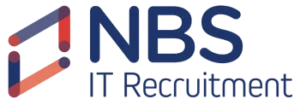In the competitive field of IT recruitment, technical recruiters play a crucial role in matching qualified candidates with appropriate job opportunities. Understanding the typical questions technical recruiters ask can help you prepare effectively and improve your chances of landing a job. Below, we delve into the various types of questions IT recruiters ask, categorized into a) general, b) technical, c) behavioral, and d) situational questions.
A. General Questions
We often start with general questions to get a sense of the candidate’s background and motivations. These questions help establish a foundation for more in-depth discussions and assess whether you align with the company’s culture and values.
- Tell me about yourself. This is a classic opener that allows you to present an overview of your professional background, highlighting relevant experiences and skills. We are looking for a concise and focused summary that sets the stage for further discussion.
- Why are you interested in this role? This question assesses your understanding of the job and your motivation for applying. It helps us gauge whether you have done your “homework” on the company and you are genuinely interested in the position.
- What are your career goals? We want to ensure that your long-term goals align with the opportunities provided by the company. This question helps in understanding your aspirations and whether the company can support your career growth.
- Why are you leaving your current job? This question can reveal a lot about your work ethics, relationships with previous employers, and career progression. We look for positive, forward-looking answers that focus on growth and new challenges.
B. Technical Questions
Technical questions are a critical component of the recruitment process for any technical role. These questions evaluate your technical expertise, problem-solving abilities, and familiarity with relevant tools and technologies.
- What programming languages are you proficient in? We ask this to understand your technical skill set and whether it matches the job requirements. Follow-up questions might probe your experience and proficiency level with each language.
- Describe a challenging technical problem you’ve solved. This question assesses problem-solving skills, creativity, and your approach to complex issues. We look for detailed explanations that demonstrate your technical prowess and logical thinking.
- How do you stay updated with the latest technology trends? The tech industry evolves rapidly, and we want to know if you are proactive in keeping your skills current. Answers might include attending conferences, taking courses, or following industry blogs and forums.
- What is your experience with [specific technology or tool]? We often ask about specific technologies or tools that are essential for the role. You should be prepared to discuss your hands-on experience, projects they’ve worked on, and the impact of your work.
C. Behavioral Questions
Behavioral questions help us understand how you have handled situations in the past, providing insights into your interpersonal skills, work ethic, and cultural fit.
- Describe a time when you had to work as part of a team. This question assesses teamwork and collaboration skills. We look for examples that highlight your ability to communicate, cooperate, and contribute to a team’s success.
- Tell me about a time you faced a significant challenge at work. We use this question to gauge resilience, problem-solving abilities, and how you handle stress and adversity. Strong answers include a clear description of the challenge, the actions taken, and the outcomes.
- How do you prioritize your tasks when working on multiple projects? Time management and organizational skills are crucial in technical roles. We want to know how you manage your workload and ensure that critical tasks are completed efficiently.
- Have you ever had a conflict with a coworker? How did you resolve it? This question explores conflict resolution and interpersonal skills. We look for people who can handle disagreements professionally and work towards a constructive resolution.
D. Situational Questions
Situational questions, also known as hypothetical or scenario-based questions, assess how you might handle future situations. These questions test problem-solving skills, creativity, and the ability to think on your feet.
- If you were given a project with a tight deadline, how would you ensure it gets completed on time? This question evaluates your ability to work under pressure, prioritize tasks, and manage time effectively. We look for practical strategies and a proactive approach.
- What would you do if you realized a project you’re working on is not going to meet its objectives? This question assesses problem-solving and critical thinking skills. We want to see how you handle setbacks and your ability to pivot and find alternative solutions.
- How would you handle receiving critical feedback from a supervisor? The ability to accept and act on feedback is crucial for professional growth. We look for people who demonstrate a positive attitude towards feedback and a willingness to improve.
- Imagine you are asked to learn a new technology for a project. How would you approach this task? This question tests your learning agility and resourcefulness. We are interested in how you approach self-learning and your ability to quickly adapt to new technologies.
Conclusion
Preparing for a technical job interview involves anticipating the types of questions technical recruiters ask. General questions help understand your background and motivations, technical questions assess your expertise, behavioral questions explore past experiences and interpersonal skills, and situational questions gauge your problem-solving abilities and adaptability. By preparing thoughtful, comprehensive answers to these questions, you can present yourself as well-rounded, capable professional ready to take on new challenges.
Sharing is caring
Also, you may be interested in...
- What Questions Do IT Recruiters Ask (II)? Even though it might seem like it, this article isn’t just a rehash of the first part (sequels are never good). Instead, it’s part of an experiment we’re conducting with AI. I don’t know if it was obvious or not, but the first part of this series was written by ChatGPT. We did adapt and […]...
- The Art of Interviewing A very wise person once said, “Interviewing is like a box of chocolates, you never know what you’re gonna get.” Now, I’d like to reclaim the interview as an art form. It might not be the first kind of art that comes to mind, but having a good conversation, one that’s satisfying for both parties, […]...
- Welcome to our new website! It was a long due to revamp our “Letter of Introduction” and we couldn’t be happier with the result. Alongside with the release of the new logo, it was our aim to convey a modern and sleek interface for you. We have tried to transmit our core values with this design: honesty, transparency, trust, closeness… […]...
- Feedback on, feedback off Today we would like to talk about a LinkedIn recurring topic that causes uproar every time it arises: feedback from job interviews. First of all, and so that there are no conflicts later, let us be clear here: every single person who does a job interview deserves to have the most detailed feedback possible, whether […]...
- How to get an IT job in Spain in 2024 7 easy steps to navigate IT Recruitment As 2023 is wrapping up, it’s time for those New Year’s resolutions to kick in. Perhaps one of them involves snagging a new job, or hey, maybe you’re even contemplating a move to a whole new country. Spain still reigns supreme as a sought-after spot in the […]...

